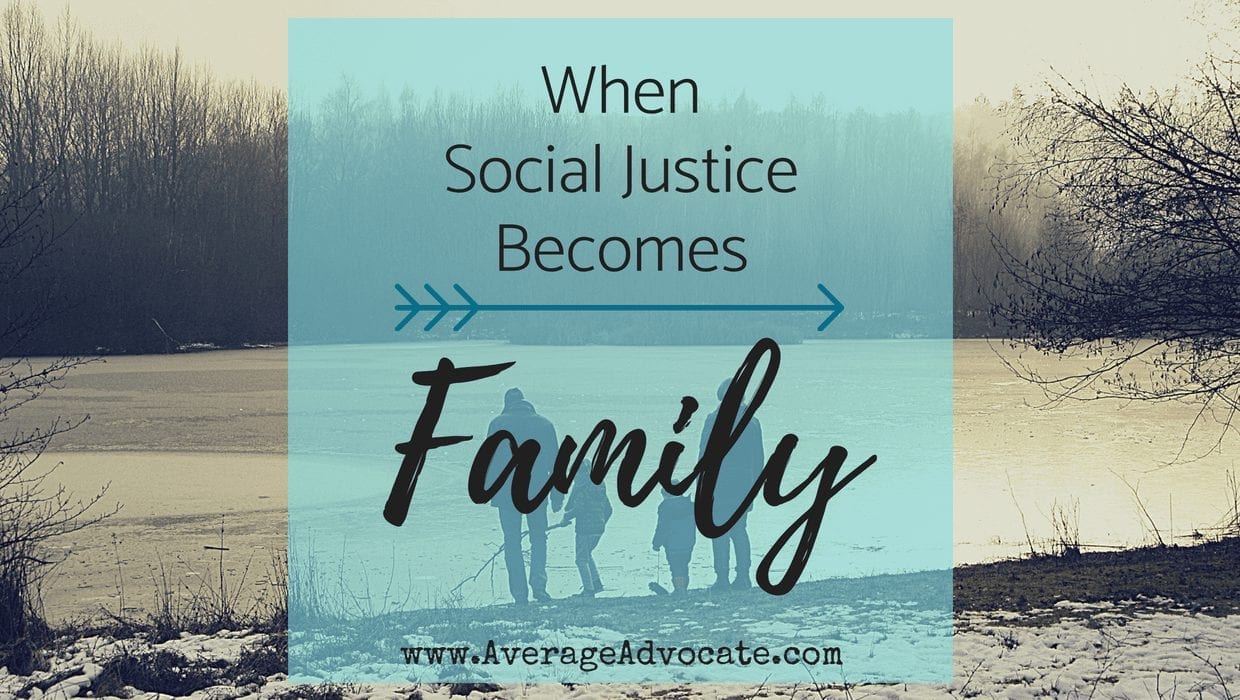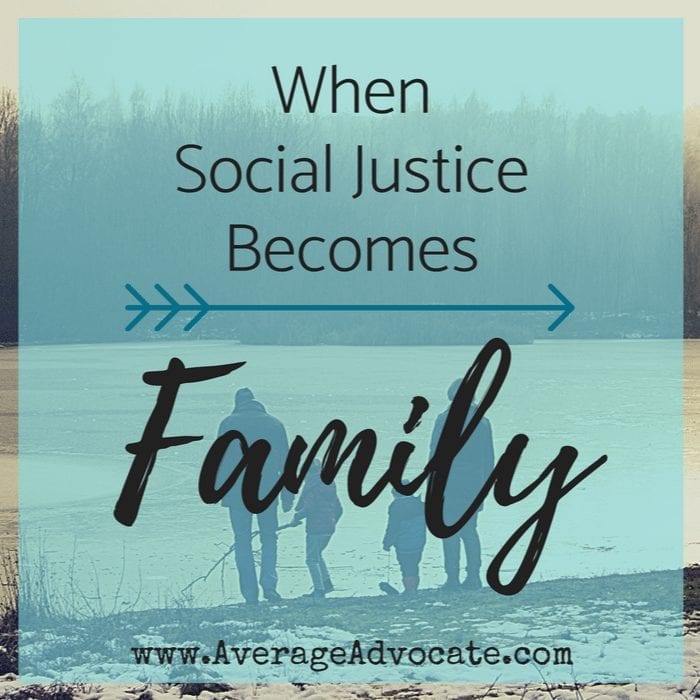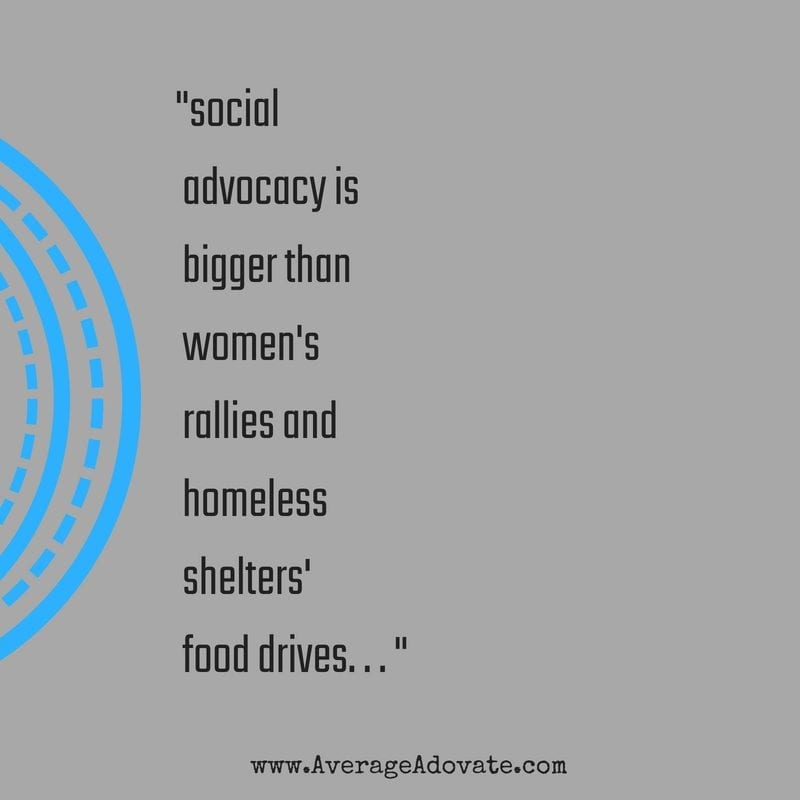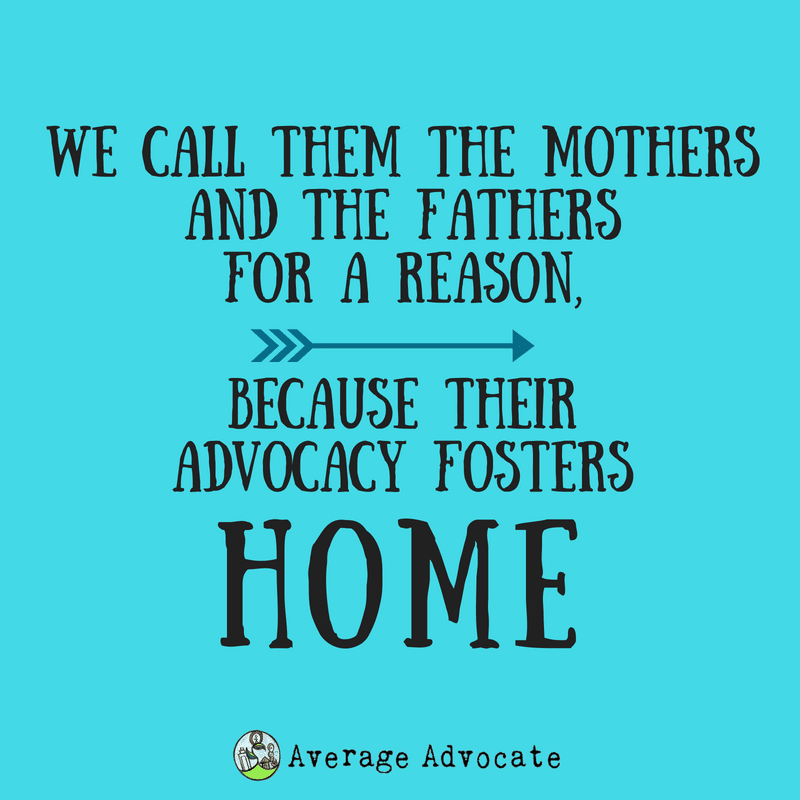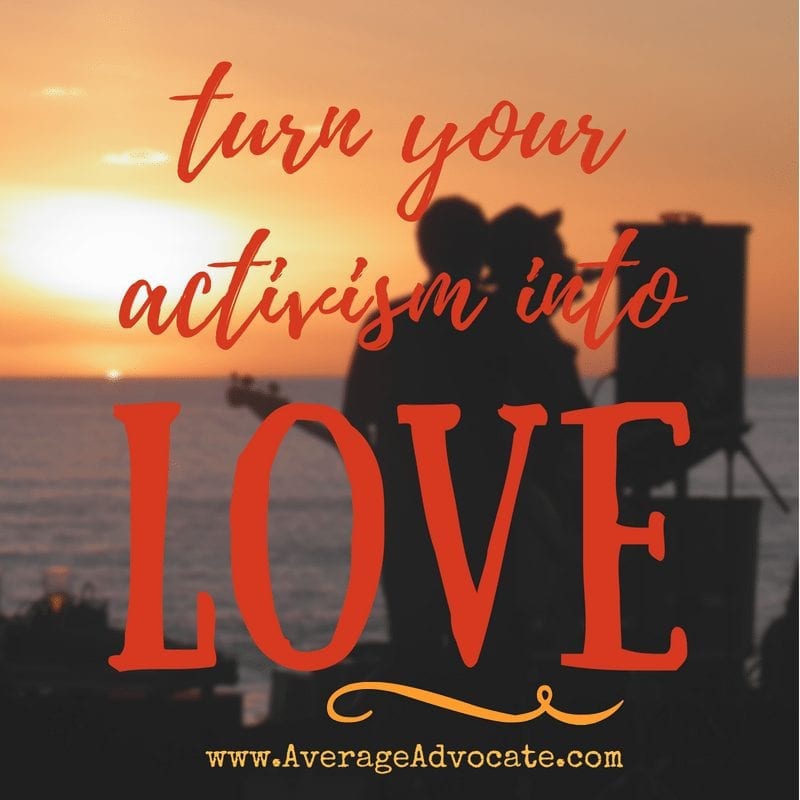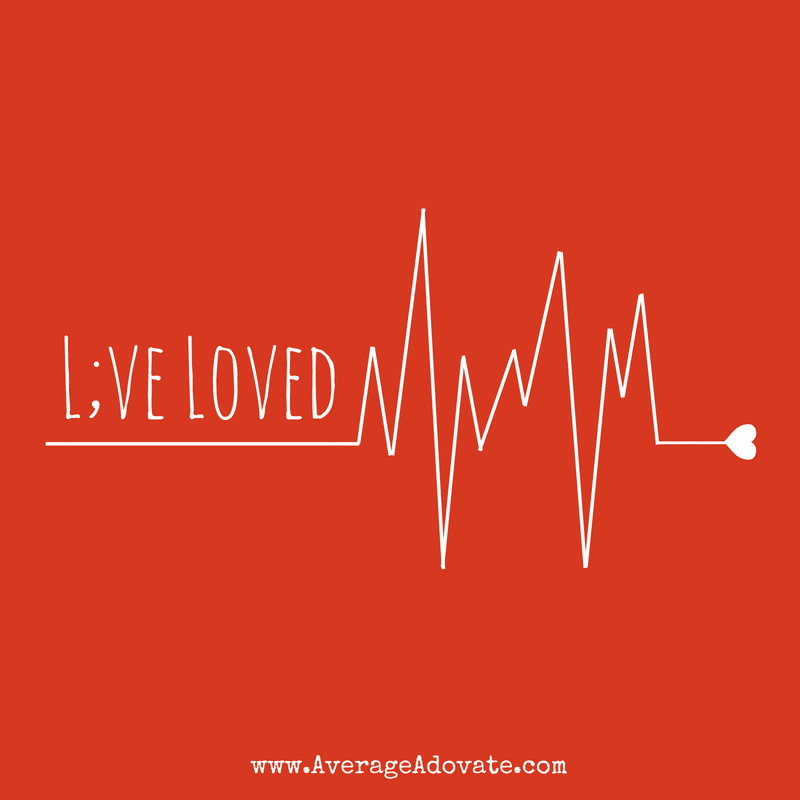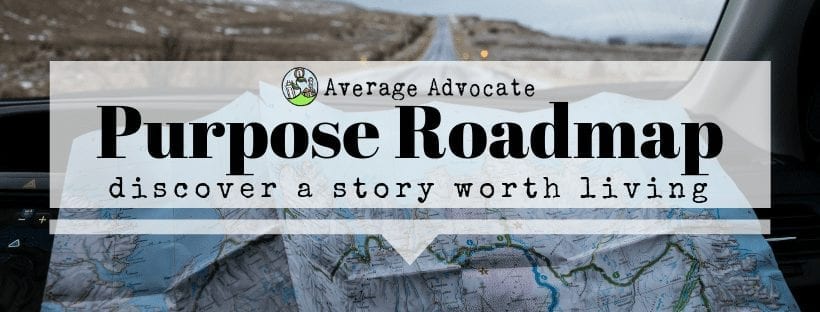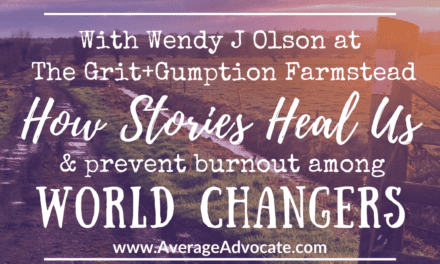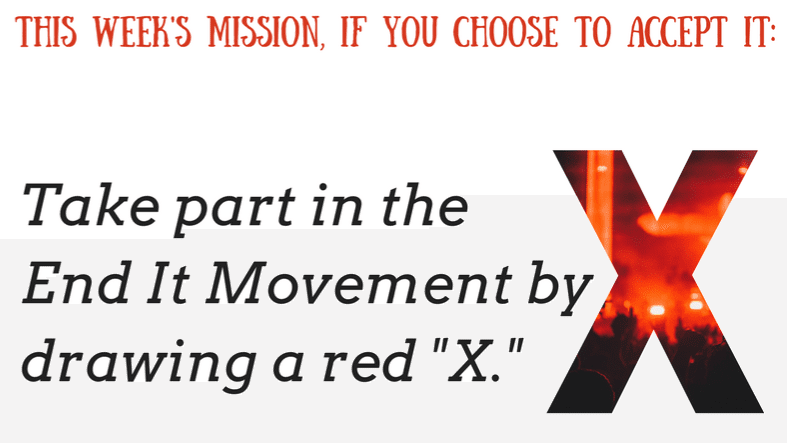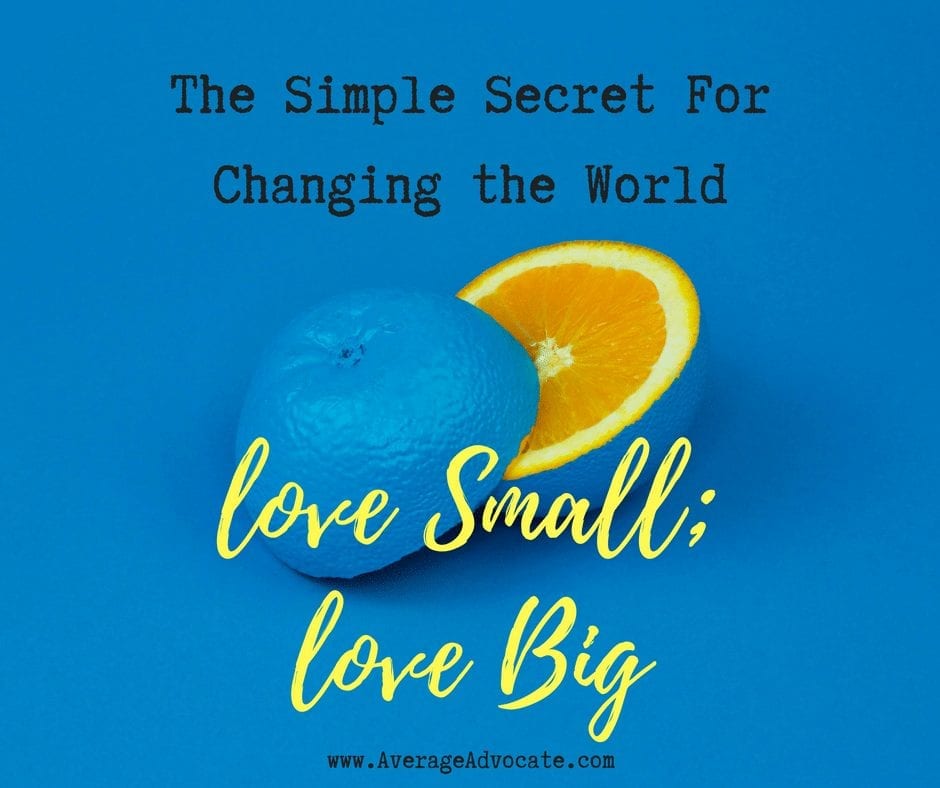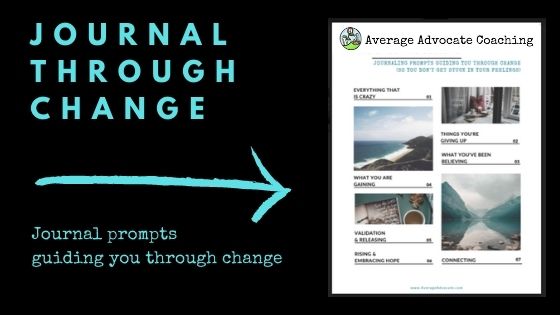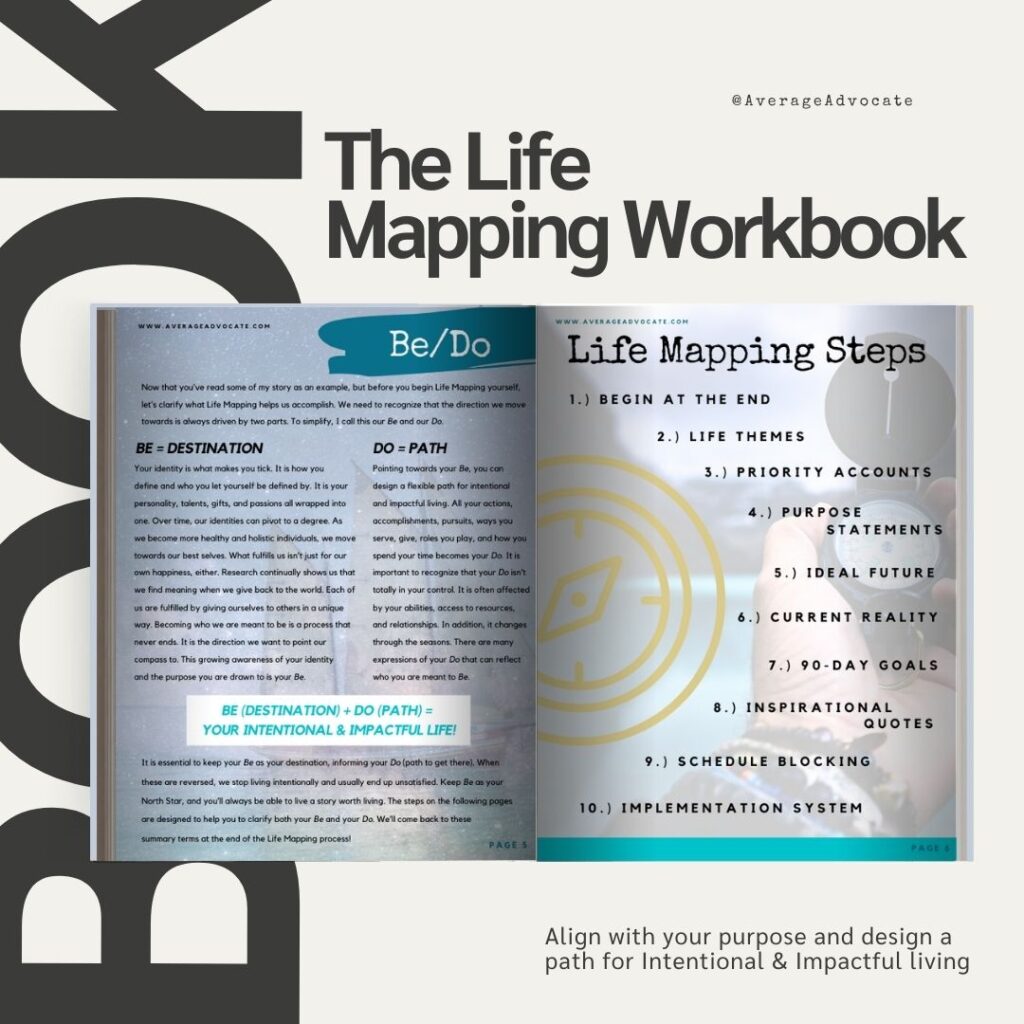At Average Advocate we talk about finding our best role to change the world on global social issues, and in doing so, we are always asking ourselves what it means to truly love others. We are spurred by “what isn’t right,” our holy discontent, wanting to do something to change it. We are often inspired by our empathy. But when does empathy become love? What happens when we learn to love like a parent, fully and all-encompassing? Will we finally change the world when social justice becomes family?
Some of us have seen our activism turned into love, and our love turned into mentorship (or discipleship). And sometimes our love transitions into something even deeper. Sometimes our love becomes . . . family.
Love Like a Mother
Surrounded by soup, salad, and sweaty kids from our hike, Sandy, my pastor’s wife, had been telling me about how she was sure God was confirming to her that she should teach about a unconditional love beyond our families (like a mother’s love) for her next sermon. I was thrilled. Unfortunately for her, I excitedly clobbered her with oh-too-much-evidence to support her topic.
I had been processing the depth of this concept as we were preparing to welcome our own new addition into our family. I was brimming with the excitement of a mom about to have her first baby.
Our New Addition
However, our own new addition wasn’t (isn’t) a little, wiggling, pink baby.
Our new addition is an intelligent, beautiful young woman I’ve been virtually mentoring for the last four years. Recently, she’s needed some extra help, love, and advocacy as she moves past her life’s struggles and prepares to take her next step towards being who she is meant to be and make the difference she is born to make.
Somewhere in there we realized our family’s next step was inviting her to become part of our home for a season. So just like that, we’ve found ourselves with something akin to an adult foster daughter (she’s not, but for lack of language that makes sense of such a relationship in our culture).
Loving her like a daughter has been opening my heart in such a profound way, and it is something I know many of you might miss out on if not encouraged to think about social advocacy as being bigger than women’s rallies or homeless shelters’ food drives.
Expand Your Family: Let Them Into Your Home
Growing up, my parents seemed to have people live with us often. People who needed support through hard times, overcome addictions, and I don’t even know what. As a kid, I was mostly oblivious and uninterested in the struggles of the people living with us. I just loved and enjoyed them as our own. What I knew was that our normal included others become part of our family for specific seasons of our lives.
Not too surprisingly, as an adult, I lived out what was modeled for me. It felt hypocritical to try to seek justice for people, while keeping everyone at an-arms length. Especially once we grew into a mentor-mentee relationship. And so over the years, we’ve had various people join our family, and learned the art of how to love, lead, and support people through their own transition and process while they lived with us.
I won’t lie. It can be exceedingly hard to invite someone into your family. Establishing boundaries and expectations, and setting up the relationship to grow and move on well past living together is both vital and challenging. We’ve made mistakes and grown through them. And I am sure that, even if we might be better at it, with our outlined agreements and “family meetings,” we’ll make more mistakes.
But, it’s been worth it. Family is worth it, and these people have become family.
Loving Others Into the Home
In the Western world, loving others usually is done at a distance, in a safe place, like Starbucks or in a public area, like on the street. We rarely invite people into our homes for a meal, let alone to live with us. Homes are our refugee, our private space were we can watch TV, yell at our kids and stop pretending. Our house is where we can let down our guard.
However, so often the advocates who we admire the most are those who’ve loved beyond normal boundaries. They are those who’ve sacrificed, who’ve given themselves away, who stopped thinking of social problems–like trafficking, poverty, refugees–as simply social justice issues but loved the real people who these problems affected.
The Mother Teresas, the Katie Davises, the everyday Bishops like the one who forgave Jean Valjean in Les Misérables . . . these are the average advocates who’ve gone in homes, invited others into their home, or made homes because their love was so great.
They are called the mothers and the fathers for a reason. Their advocacy fostered home.
Getting “Dirty” — When Social Justice Becomes Family
I remember once having a conversation with one of my mentors about how difficult it was to push people who wanted to be known for loving others to actually be involved in social issues simply because they wanted to do something in a way where they would never get their hands or feet dirty. They wanted to give money, run a 5k, maybe even post something.
But get messy? Touch real people? Hear their stories one-on-one? And even then, not consider those people projects? But really get to know and love people?
Oh no. That is too hard. Too messy. Too scary.
Trust me, it is a quandry to be asked to start organizations that will do something about human trafficking or poverty in local schools, even sponsored–but not have advocates who are willing to actually love people backing you.
So often we want to be associated with the movement. We want to condemn the injustice. We want to give our $20.
But we don’t want to invite those in need to walk into our lives.
How can we expect to be social advocates without loving people? And then, how do we expect to love people without the challenges of making time, energy, space for them as if they are family?
(Does this post resonate with you? If so, share it or the above image)
Your Next Step: Turning Your Activism Into Love
My life has temporarily been overtaken with walking with our new addition towards wholeness. Although we’ve had people become family with us before, this is a new thing. I am amazed at how much of a blessing she has become to our family; her life with us is a privilege. I am also learning how little I loved before–how unsacrifical my love was (despite authoring a blog on being a world changer).
I am so thankful for this season of bringing social justice into my home and I don’t want you to miss out. Considering, here are some areas you might feel a tug to respond in:
- It is time for your advocacy to move beyond seeking justice on a macro-level, and begin getting your hands and feet a little dirty to touch real people.
- It is time that your love for others needs to expand a little more, as you let your guard down some, become vulnerable, become seen, and allow specific people past your boundaries, into your family, into your heart.
- It is time for your influence to become less of leading, mentoring, coaching, and look more like parenting.
Join me by turning your activism into love.
Stay turned for the next post on Living Loved

